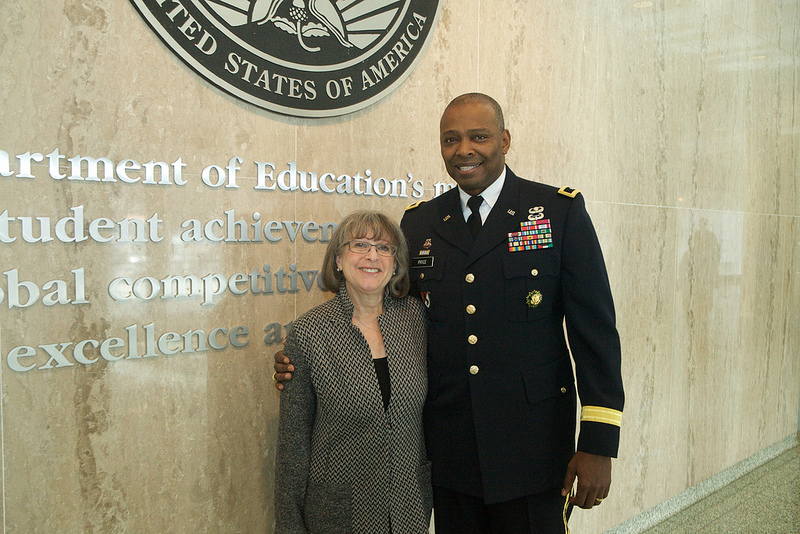This Blog has been featured by the West Orange Chamber of Commerce. Sources such as HLN have also been home to publications by Dr. Farnaz Namin-Hedayati and she has been cited by the Orlando Business Journal.
Across America this Veterans Day, events and ceremonies are honoring brave veterans. These are leaders who have sacrificed time with their families and sometimes have been significantly wounded in their efforts to keep our country safe. While this is an important time of paying respect and remembrance, honoring veterans at home and work should be a daily activity. John Fitzgerald Kennedy said “As we express our gratitude, we must never forget that the highest appreciation is not to utter words, but to live by them.” This is about truly empathizing with our heroes, and connecting with them.
As mentioned in Time’s article Fresh from War, Veterans Need Interpreters to Land Jobs, Alex Horton discusses challenges for veterans in transitioning from military to civilian jargon. Beyond verbal and non-verbal communication barriers and struggling to find work upon returning home, even veterans who have found jobs are still experiencing a drastic transition into work life. Alumni Director for the Wounded Warrior Project, Ryan Kules, says “Far too often, people assume a level of familiarity with former military, that not only breeches proper office conduct, but also invades personal space.” Kennedy’s words hold true now, more than ever. It is the responsibility of both the veteran and the workforce to help make the adjustment smooth through practicing emotional intelligence and understanding proper courtesy.
How Not to Interact With Your Veteran Co-Worker:
- Avoid asking overly personal questions.
Don’t ever say “have you killed anyone?” This information should only ever be voluntarily offered, if it is shared. - Don’t express to that individual if you feel the country shouldn’t have been in the war.
This person made a big sacrifice, which is more important to your interaction with them than expressing political views. - Never inquire if that person has post-traumatic stress syndrome.
This is not a syndrome that impacts all veterans. Even if it was, that is not appropriate to ask. It is their personal medical information. - Don’t ask how the individual could leave their kids behind to serve.
Instead offer positive encouragement statements (ex: “I know your family is so happy to have you home safe. We all appreciate your service.”)
How to Honor Veteran’s at Work on Veterans Day:
- Invite them to a veterans day event
- Take the veteran to lunch
- Offer the veteran a thank you card for their service
- Make a donation to the USO in the Veteran’s name
- Place patriotic flowers on the individual’s desk
- Send a thank you email to all veterans
- Organize a morning breakfast in honor of office veterans
- Offer a plaque of appreciation
- Give the veteran a gift card
- Simply say thank you
It is to our brave veterans who we owe thanks for the freedom we experience each day. As you honor your veteran co-worker, boss or employees on Veterans Day 2013, remember to truly internalize how much their actions have impacted your life. Let’s make our workforce one that doesn’t just speak the words of respect, but lives by them every day.
(Photo Credit: US Department of Education via Flickr)
Related Reads:
Considered Veterans’ Affairs






